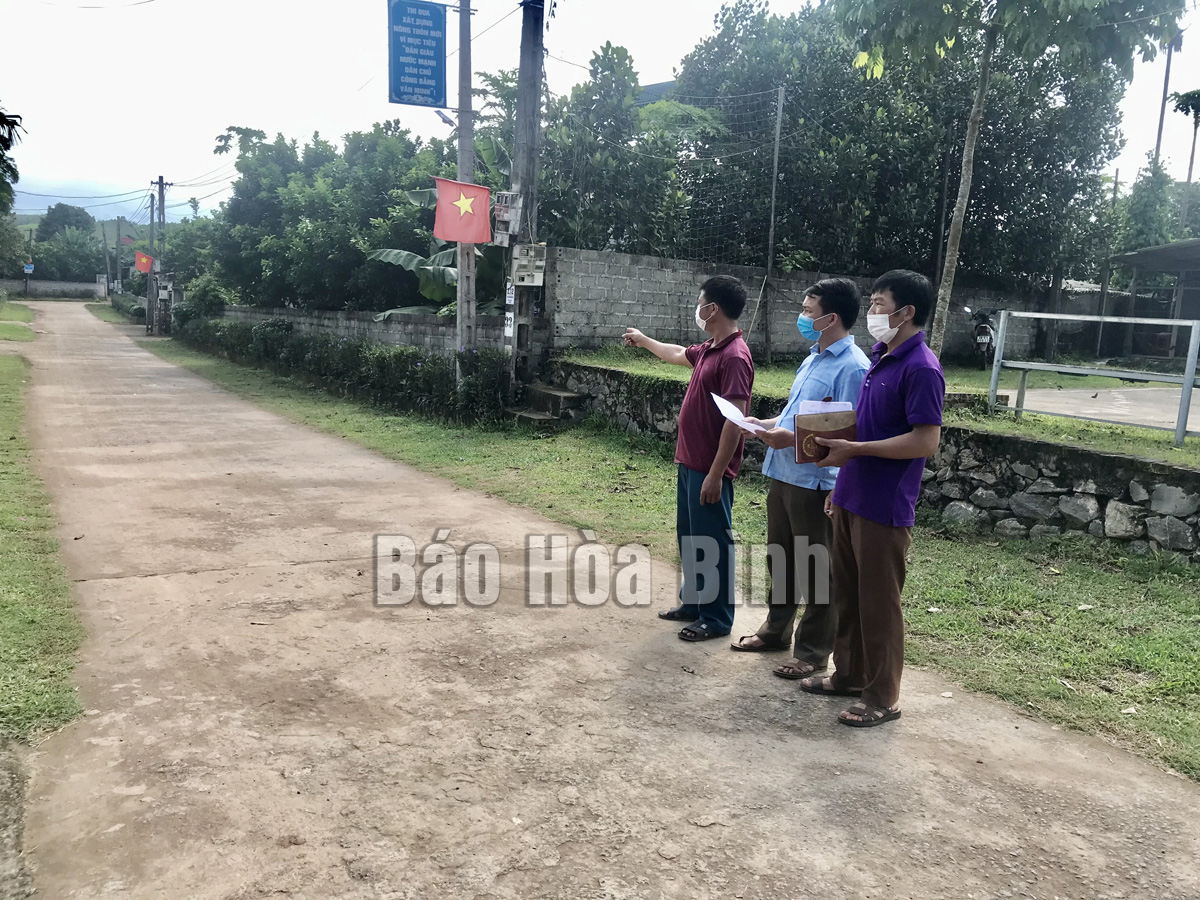
(HBO) - Defining mass mobilisation as one of the important tasks, Tan Lac has actively encouraged local residents to implement the Party and State’s policy and law, thus laying the foundation for the implementation of its socio-economic development.
Thanks
to effective mobilisation of locals’ engagement in new-style rural areas, so
far, Nen 2 village in Thanh Hoi (Tan Lac) has become a model rural residential
area.
The model new-style rural area of Nen 2 in Thanh
Hoi commune has changed positively since the locality launched the new-style
rural area building programme in 2011. From a locality with poor infrastructure
system, so far, Nen 2 village have 96 percent of its roads concretised and lighting
system has been installed in all corners of the village.
Head of Nen 2 village Bui Van Hien said that the
management board of the village and the local government has worked in an open
and transparent manner with promoted democracy, while respecting and listening
to opinions of local residents, thus ensuring that locals engage in the
decision-making process of all works.
The mass mobilisation system of Tan Lac from the
district to village levels has proved its efficiency. So far, the district has
built 141 models of "Effective mass mobilisation” in all fields such as
economy, culture, society, and defence-society.
The grassroots democratic regulations have been
fully implemented, ensuring the mastery rights of the people. Local residents
have involved in discussing issues related to their rights and interest, as
well as in the construction of public works.
Bui Thi Tu, head of the district Party
Committee’s Mass Mobilisation Commission said that in order to call on locals
to implement the Party and State’s policies and laws in an effective manner,
the pioneering role of local officials, Party members and prestigious people in
the community is crucial. Along with ensuring openness and transparency, the
people must be placed in the core position in the design of policies and plans
related to their interest, she said, stressing the need to diversify the method
of mobilisation to suit each village and hamlet./.
Hoa Binh province is undergoing a dynamic transformation amid Vietnam’s national digital transition. Building on Poliburo’s Resolution No. 57-NQ/TW on breakthroughs in science, technology, innovation, and national digital transformation, the province has rolled out a wide range of practical action plans. A standout initiative is the "Digital Literacy for All” movement, an effort to ensure that no one is left behind in the digital era.
Hoa Binh province is undergoing a dynamic transformation in the wake of the national digital transformation movement. Building on Resolution No. 57-NQ/TW of the Politburo on breakthroughs in science, technology, innovation, and national digital transformation, the province has implemented a wide range of practical action plans. A standout initiative is the "Digital Literacy for All” movement ambitious effort to ensure that no one is left behind in the digital age.
With a spirit of unity and proactive problem-solving, the Party Committee, the government and the people of Dong Lai Commune (Tan Lac District) have made great strides in implementing the resolutions of the 24th Party Congress of the commune for the 2020 - 2025 term. Focusing on leadership and practical actions, the commune has brought the Party’s resolutions into daily life, creating strong impacts and pushing the local development forward.
Amid the nationwide push for digital transformation, young people in Hoa Binh Province are stepping up as dynamic pioneers, applying technology to enhance Youth Union operations and expand the reach of youth-led initiatives. Through creativity and adaptability, Youth Union organizations at all levels have introduced a series of practical solutions, contributing to modern governance and community development.
In recent years, An Nghia commune, located in Lac Son district, has stepped up administrative reform, focusing on improving the quality and efficiency of its single-window service unit for receiving and processing administrative procedures. These improvements have helped create favourable conditions for local residents and organisations to handle administrative procedures, contributing to the commune’s broader socio-economic development.
The Prime Minister-approved master plan to develop the multi-use value of forests ecosystems through 2030, with a vision to 2050, aims to improve the management and sustainable use of forest resources, create jobs, increase incomes, and improve the living standards of ethnic minorities, people in mountainous and remote areas, forest workers and those living near forests.



